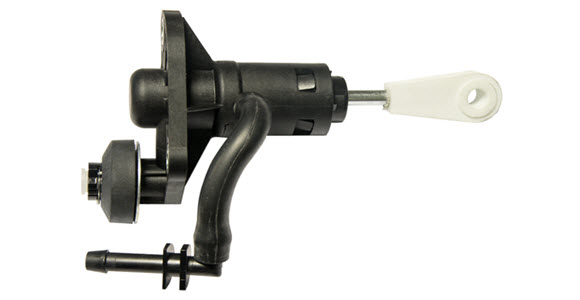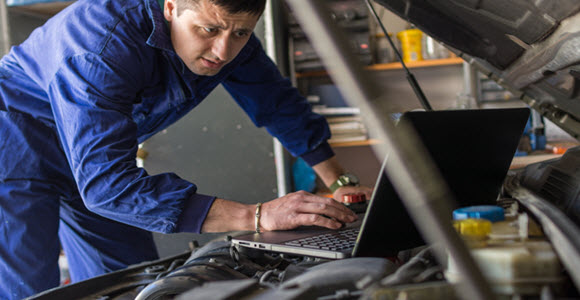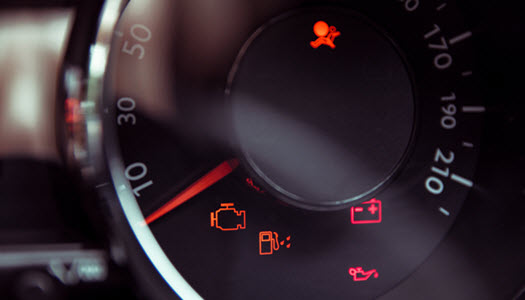Why Your Porsche May Need a Clutch Slave Cylinder Replacement
Posted on | 24 Apr 2018 By Anita Gaal
Porsche vehicles are exceptionally well-made; this brand employs some of the best engineering and design models in the automotive industry. Known globally for their high levels of performance and power, Porsche cars might seem impervious to part failure. However, no matter what type of vehicle you drive, they all require maintenance and care to keep them in optimal condition—Porsches are no exception. In fact, if you own a European import, luxury vehicle, you might consider putting forth an even more considerable effort into auto servicing.
Stick shift vehicles, or manual transmission cars, can run into clutch issues over time. Your clutch is a critical component of the transmission system that over time can become worn or damaged with ongoing use. In your Porsche, when you notice signs or symptoms of clutch problems, it can be especially concerning; as you come to expect a higher level of performance in these luxury cars. One component that is known to fail in certain Porsche models is the clutch slave cylinder. If you’re not aware of what a clutch cylinder does for your Porsche, you’re not alone. Keep reading to learn more about why this part that could need replacement in your own Porsche.
What is a clutch cylinder and what does it do?
A clutch slave cylinder is part of a system that works in connection with other components in order to engage the clutch when shifting gears. Here’s how it works: the clutch master cylinder holds brake fluid that flows through a system of tubing to the clutch slave cylinder which helps to involve the clutch in ample movement to shift gears. Any system that involves fluid of any kind also has specific sealing components designed to contain the liquid. This is important to know, as it might contribute to the common symptoms of clutch slave cylinder failure.
Symptoms that indicate the need for slave cylinder replacement
Keeping an eye out for the common symptoms associated with slave cylinder failure is critical, as upon total failure it will render your Porsche undriveable. There are several common signs that your Porsche needs a slave cylinder replacement, and it’s usually not that simple. If the slave cylinder must be replaced, the master cylinder will likely also need replacement—as well as the other way around. Furthermore, depending on the type of Porsche you drive and the transmission involved, more labor might be required in order to replace these parts accurately.
Leaking brake fluid
Since the system contains brake fluid and requires intact seals in order to contain the fluid, if one of these seals begins to corrode or deteriorate, then it is quite common to notice brake fluid leaking. As the brake fluid leaves the system, the clutch is unable to perform normally.
Difficulty shifting gears
When the clutch system begins to fail, this causes the transmission to be unable to function properly. Since the clutch master cylinder and clutch slave cylinder work together to engage the clutch, if either one of these parts begins to fail it can cause noticeable differences in gear-shifting. This is concerning, as it’s only a matter of time before your Porsche is rendered undriveable.
Clutch pedal reaches the floor when you apply pressure
Again, failing seals are a common malfunction of this system. If the brake fluid cannot be released from the master cylinder into the slave cylinder due to a faulty internal seal, then the clutch will behave oddly. The clutch pedal should not reach all the way to the floor when shifting gears, and if it does, you should bring it to a professional for inspection right away.

How to maintain your clutch cylinders
When you bring your Porsche in for normal, ongoing maintenance, they typically check all of your car for ample, clean fluids—this includes brake fluid. If your Porsche is leaking any fluid, your automotive specialist will notice. Here at Euro Automotive, we have replaced numerous clutch master cylinders, and therefore clutch slave cylinders in Porsche vehicles from all over the areas of Dallas, Garland, Arlington, and Fort Worth, TX. This complex systems of seals, hoses, and moving parts requires ongoing assessment and maintenance in order to function properly at all times. In a Porsche especially, it’s critical to keep the transmission running well, otherwise its standards of performance are wasted. If you notice any of the previously mentioned symptoms of clutch slave cylinder failure, please call us to schedule an inspection.
* Porsche 718 Cayman image credit goes to: DarthArt.















